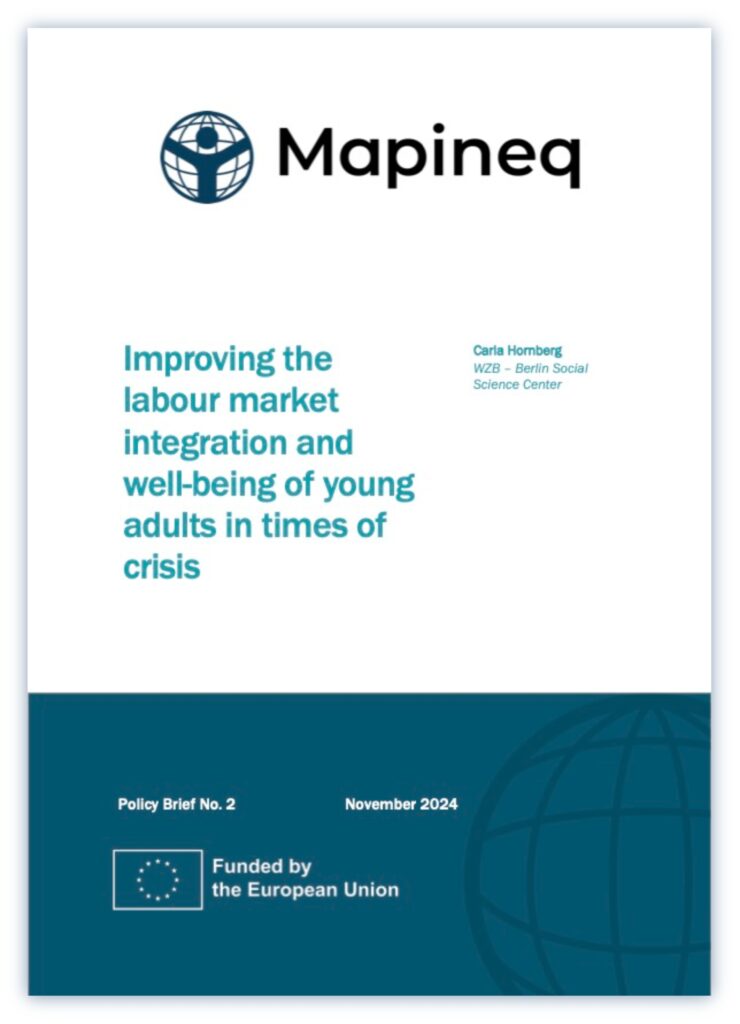Improving the labour market integration and well-being of young adults in times of crisis
Improving the labour market prospects of young adults is a major concern in European countries. From a life-course perspective, young people’s entry into the labour market, especially into rewarding jobs, is crucial for promoting positive career trajectories. Research has widely demonstrated that this phase strongly influences subsequent career paths and success in other life domains, such as family formation.
This policy brief summarises key findings on the prevalence and drivers of outcomes for young adults, highlighting both similarities and differences across four broad outcome domains. The most influential explanatory factors are highlighted in order to identify promising pathways for ensuring young adults’ labour market integration and well-being.
By Carla Hornberg.

Invest in Health Services for Young Adults: Recognise health as a key factor for labour market integration by improving access to preventive and mental health services. Include more mandatory health screenings during high-school years and improve health literacy in schools.

Invest in Creating Quality Jobs: Create sustainable quality jobs, for example by attracting larger companies, to reduce unemployment and underemployment among young adults.

Promote Access to High-Quality Employment: Improve pathways to high-status occupations through targeted training programmes, internships and apprenticeships. Invest in lifelong learning opportunities and continuous skills development to support young adults facing challenges in entering the labour market.

Support Educational Attainment for Regional Equity: Prioritise investment in education in underserved regions to equalise opportunities. Introduce or expand vocational training programmes in rural areas where occupational attainment tends to be lower.

